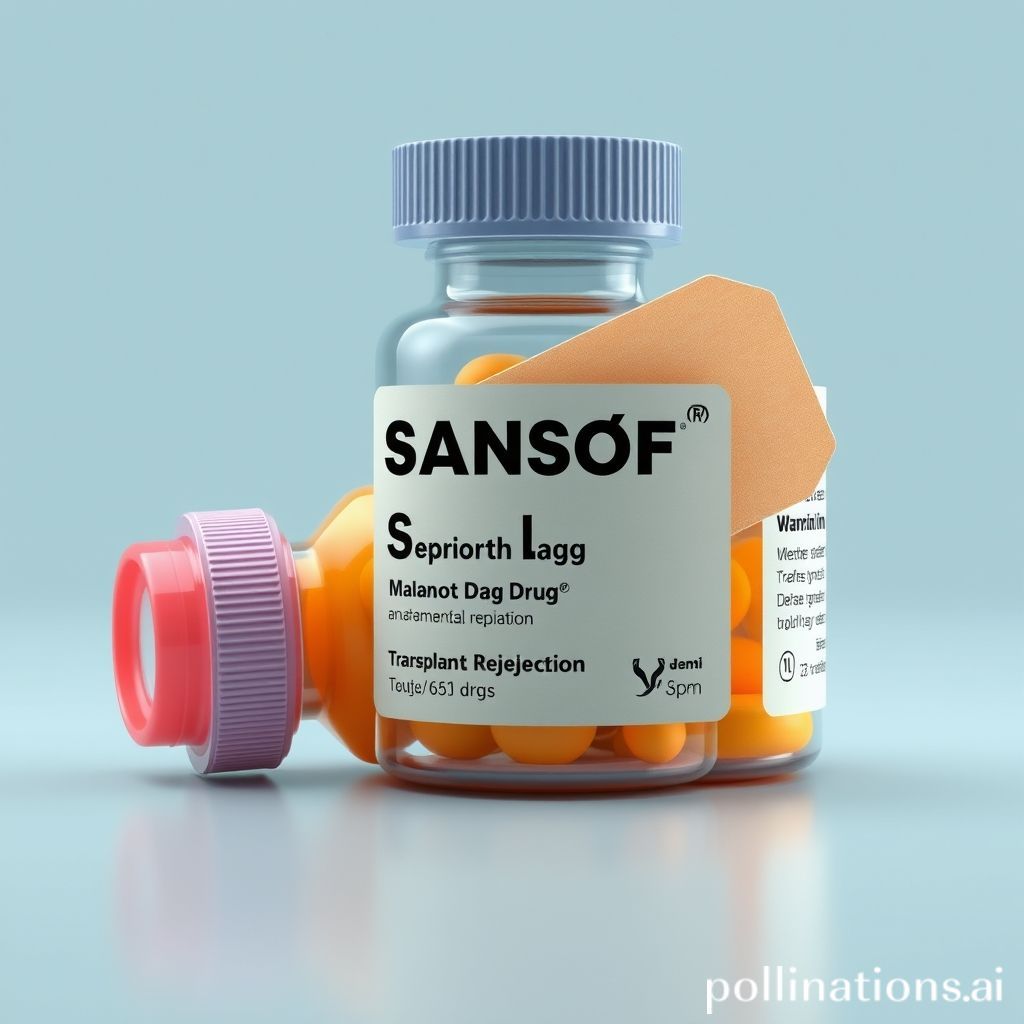Sanofi's Experimental Transplant Rejection Drug Gets FDA Orphan Tag

Sanofi's Experimental Transplant Rejection Drug Gets FDA Orphan Tag
Sanofi's Hope for Transplant Patients: An Orphan Drug Designation
Hey everyone! Ever wondered about the intricate dance our bodies perform when we receive a life saving organ transplant? It's a miracle of modern medicine, but it's also fraught with challenges, especially the risk of rejection. Today, we're diving into a promising development in this field: Sanofi's experimental drug and its recent FDA Orphan Drug designation. This is more than just a regulatory hurdle; it's a beacon of hope for countless individuals waiting for or living with transplanted organs.
Understanding Transplant Rejection
First, let's quickly recap why transplant rejection happens. Imagine your body as a highly secure kingdom with its own army of defense cells. When a new organ arrives, these cells recognize it as foreign, triggering an immune response. This response, intended to protect you from invaders, can unfortunately damage the transplanted organ, leading to rejection. Immunosuppressant drugs are used to dampen this response, but they come with their own set of side effects, including increased risk of infection and even certain cancers.
What is an Orphan Drug Designation?
Before we delve into Sanofi's drug, let's clarify what an Orphan Drug designation actually means. In the United States, the FDA grants this status to drugs and biologics intended to treat rare diseases or conditions, generally those affecting fewer than 200,000 people in the US. This designation offers several benefits to the drug developer, including tax credits for clinical trials, exemption from user fees, and potential market exclusivity upon approval. Essentially, it incentivizes pharmaceutical companies to invest in developing treatments for conditions that might not otherwise be commercially viable.
Sanofi's Investigational Drug: A New Approach?
Now, let's talk about Sanofi's experimental drug. While the specific details remain under wraps (companies tend to be secretive during development), we know it's being developed to prevent or manage transplant rejection. What makes it potentially different is that it might target the immune system in a more precise way than current immunosuppressants. The goal is to suppress the rejection response without completely shutting down the immune system, leading to fewer side effects and a better quality of life for transplant recipients.
Why is This Designation Important?
The Orphan Drug designation is significant for several reasons. First, it signals that the FDA recognizes the unmet need in preventing and treating transplant rejection, particularly in specific populations. Second, the incentives associated with the designation can accelerate the drug's development and bring it to market sooner. Third, it can attract further investment in this critical area of research.
Comparison with Existing Treatments
To put things in perspective, let's compare Sanofi's investigational drug with current standard treatments:
| Feature | Current Immunosuppressants | Sanofi's Investigational Drug (Potential) |
| | | |
| Mechanism of Action | Broadly suppresses the immune system | More targeted immune modulation |
| Side Effects | Increased risk of infection, cancer, kidney damage | Potentially fewer side effects |
| Target Population | Most transplant recipients | Possibly specific patient subgroups |
| Efficacy | Established but can vary | To be determined in clinical trials |
The Future of Transplant Medicine
Sanofi's drug is one of many promising avenues being explored in transplant medicine. Researchers are also investigating ways to improve organ preservation, develop more personalized immunosuppressant regimens, and even create artificial organs. The ultimate goal is to make transplantation safer, more effective, and accessible to everyone who needs it.
The human body is a wonderland, and the advancements in medications and medical practices are fascinating. I remember reading a story of a young boy who received a heart transplant when he was just a toddler. Years later, he's now a thriving teenager, playing sports and living a normal life. It's stories like these that remind us of the profound impact that medical innovation can have on individuals and families. While we wait for the results of clinical trials and the potential approval of Sanofi's drug, let's celebrate the dedication of the researchers, clinicians, and patients who are pushing the boundaries of transplant medicine and making the impossible possible. Their combined efforts offer a future where transplant rejection is no longer a major threat, and where more lives can be saved and improved through the gift of organ donation.
Sources:
[Include official Sanofi press releases and FDA resources here once available. Always cite your sources.]
Comments
Post a Comment